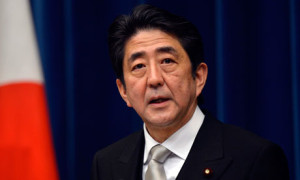Japanese Prime Minister Shinzo Abe said it once again this week.
Japan has expressed profound grief and remorse for the events that led to and included all that happened during World War II.
Japan has noted the end of the great war. The prime minister apologized on behalf of his government. He also noted that the vast majority of Japanese citizens were born after World War II and that his nation shouldn’t be expected to keep apologizing for the deeds of its forebears.
I get what the prime minister is trying to say. As the son of a World War II veteran who had served in the European Theater before being reassigned to the Pacific Theater, I appreciate the prime minister’s expression of remorse and grief.
He’s not alone, of course. Aging Japanese war veterans also have been seeking forgiveness for their actions in World War II. They travel to Pearl Harbor, Hawaii to pay their respects at the Battleship Arizona Memorial, where more than 1,000 American seamen are interred where their ship sank during the sneak attack on Dec. 7, 1941.
The coverage of Abe’s speech, though, takes note of the absence of a “new apology.” It makes me wonder: How many times and how many ways must a leader of a foreign government with which we once were at war apologize?
I believe Prime Minister Abe’s latest apology speaks quite eloquently.
